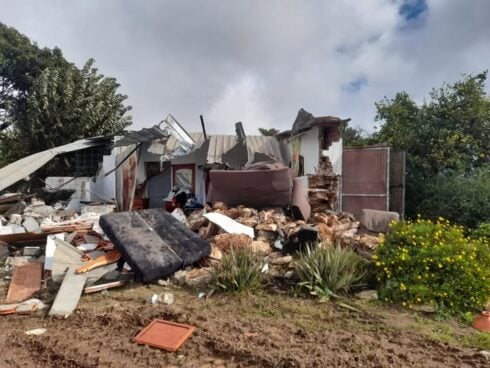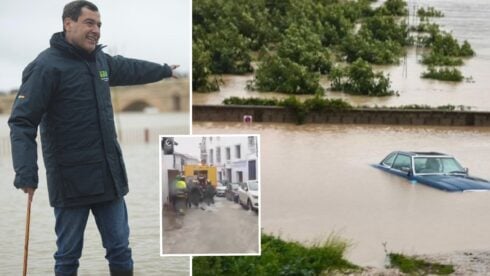Alarming reports into cocaine abuse in Spain do not surprise Carlos Pranger. He believes too many of his countrymen confuse the freedom of democracy with hedonism
IT hardly needs to be said that in developed countries the incidence of illegal drugs such as cocaine, hashish, heroin, ecstasy or PCP has become a primary health and social problem.
Thomas Pietschmann, responsible for the United Nation’s 2007 report on drugs, concludes that a higher percentage of Spaniards between the ages of 15 to 64 consume more cocaine than the whole of the United States and four times more than the average of other countries in the Europe Union.
Although the consumption and production of drugs seems to have stabilized throughout the rest of the world, in Spain it is increasing at a worrying speed: one of every five global consumers of cocaine is Spanish.
Spain is also the fourth country in the world, after Columbia, the US and Venezuela, in the number of drug confiscations [48,429 kilos seized in 2006 – source: United Nations]. Traditionally, Spain is in a privileged position as the gateway through which drug mafias introduce their products into Europe – especially hashish, as it is geographically close to Africa, and cocaine due to its cultural and historical connections with South America.
Drug commerce is the most lucrative business after the arms trade. It is estimated that it produces more than 800,000 million US dollars every year, and its corrupt ramifications reach to all the different levels of society. Every year, news stories abound concerning the police, the Guardia Civil and even the judiciary and drug scandals related to corruption or money laundering.
The consumption of illegal drugs in Spain is on the up, but to understand why we must analyze the social and cultural evolution of Spanish society during the last few decades and its transformation into a consumer society. For 40 years, during Franco’s dictatorship, Spain lived through severe restrictions regarding individual and collective freedom.
The country slowly opened up after Franco’s death and has absorbed the best – and the worst – of the free democratic world. Some Spaniards tend to confuse freedom with libertinism. It seems to be the country of extremes, black or white, all or nothing. Moreover, the same thing has happened with drugs, which have gone through their own ‘democratization’ process. For example, cocaine was perceived as the drug for the rich, for the capitalists, but as its price has fallen it is now available to anyone.
There is also an economic aspect. As Spain’s economy is founded on tourism it is a country of services. Julio Anguita, the ex-leader of political party Izquierda Union, called Spain “the waiter of Europe.” As a country of services, it will offer anything that is demanded, no matter the state of its legality. The great example of this is Ibiza which, in the summer, is the European capital of parties, drugs and sex.
Every year, the government spends incredible amounts of money on awareness campaigns directed towards younger generations, but these do not seem to work. After every new campaign, the data becomes more worrying. The educational methods based on slogans of Just Say No are a failure. Recently, the consumption of cocaine among young people in high schools has increased from 3.5 per cent in 2002 to more than 7.5 per cent in 2005. Drugs are all too readily available and the perception of the risk of drugs has changed: their consumption has become a glamorous nihilism. The potential drug abuser starts with cannabis and ecstasy and often ends up as a cocaine or multiple drug consumer.
The actual prohibitive model as regards to drugs is not working. Is legalization the solution? That is one of the great debates. Every country is different, but considering Spain’s actual cultural level, I think that people are not ready and that this measure would make the situation even worse – take a look at the (in)tolerance with adolescents getting drunk every weekend in the botellon (mass drinking parties in the streets).
Perhaps the solution is to work on a more intensive educative level with young people. Then governments could take control of the drug policy, which would be better conducted by taxes, quality control and, above all, denying the financing of crime.
However, considering the present situation, full of inane gestures and hypocrisy as regards drugs, governments, authorities, or police are not going to be there when a young adolescent is offered ecstasy or cocaine at the door of his school. He is alone and has to choose, but he must have information to decide what he wants to do with all the consequences. There is an association in Cataluña called Energy Control, which places a portable laboratory at the entrance of nightclubs. Drug consumers can take their drugs to be analysed and get information about what they are taking.
Drugs have always played a part in human life. To begin with, they gave access to revealed truth in religious rites and then they were used for therapeutic or hedonistic purposes. Now they are part of the leisure activities of a consumer society and have become an increasing problem that is far from being solved. Will the health system be able to cope with all these potential future addicts? And what about the increasing crime rate that often goes hand in hand with drug abuse?
The only solution seems to be is the creation of a greater drug awareness and, through education and information, allow people to decide for themselves.
Click here to read more News from The Olive Press.





